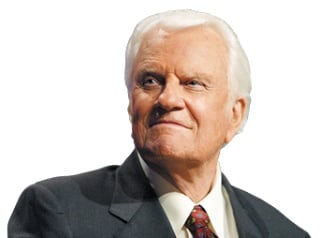I saw the huge letters of a single German word, followed by an exclamation point. It adorned the oversized picture of an automobile: “FREUDE!”
BMW’s new promotional campaign was plastered all over Munich when I visited there years ago with John Piper. I didn’t know German, but John did from his studies there in the seventies. Finally, I turned to ask for a translation of the one-word slogan. He smiled and said, “Joy.”
Joy We Commend
Joy and happiness are not unintelligible words to the world. Humans today, like humans throughout history, want to be happy. We crave real joy. We spend our lives, however consciously or not, seeking various satisfactions for our deep inner longings. We think and talk about happiness in countless ways. Savvy marketers know they are selling joy and happiness. Car companies know. Even fast-food chains know, as captured in the Christmas-season campaign “Spread the joy!” or the current “Feed your happy.”
And joy and happiness are manifestly biblical words. Scripture teems with mentions of joy, rejoicing, and delight; with appeals to desire and promises of reward; with testimonies of satisfaction and happiness. Christians, of all people, do not forsake true happiness to bow before our Creator, but rather, according to Scripture, our God is glorified in and through his people finding real happiness in him.
So, as Christians, we commend joy and happiness. We use the language and embrace the pursuit. Even as our world too seeks and talks of joy and happiness. But it is the same joy and happiness?
Three Marks of Real Joy
At one level, Christians and non-Christians are seeking the same thing. The deep, God-designed desire in the human heart, the impulse toward joy and soul satisfaction, is shared by all of us alike. We all want to be happy. We share in and start with that same primal ache. But oh how the roads diverge in the pursuit.
So, at another level, the Christian experience of real joy and true happiness is emphatically not the same experience of joy and happiness the world has apart from Christ. However wrong humans go in their efforts to satisfy the universal impulse toward happiness, finding Jesus reorients the impulse toward the right and enduring and truly satisfying focus.
The call to Christian Hedonism, as some of us like to call it, is not a summons to seek our own joy like the world does. The joy we seek that genuinely satisfies the soul, and so glorifies God, is a different kind of joy than the world knows apart from Christ.
How, then, does Christian joy differ from the world’s sense of joy? Consider at least three aspects.
1. Source: God Himself in Christ
First, and most plainly, Christian joy differs from worldly joy in its source. At bottom, Christian joy is in Christ, not apart from him. Jesus, in whom dwells all the fullness of God in full humanity (Colossians 2:9), is the final and deepest source of our joy. And in this age, Jesus is mediated to us by and with the Scriptures. So, joy in Christ becomes, by extension, joy in his word. Joy in and through Scripture, then, becomes not an infallible but a profoundly revealing test of our joy in Jesus.
Christian joy is in God’s presence and nearness, rather than his absence (Acts 2:28). Christian joy is so deeply linked with Christian faith that Paul can talk of “the joy of faith” and even of joy and faith as synonymous in some contexts (2 Corinthians 1:24; Philippians 1:25). So rooted is Christian joy in our Lord’s greatness, not our own, that we can have joy in (not just despite) personal weakness, because our weakness is an occasion for our mighty Christ to demonstrate his strength (2 Corinthians 12:9). Christian joy, then, is not the joy that can be produced in our own human flesh, but the supernatural joy that is produced in the Holy Spirit (Acts 13:52; Romans 15:13; Galatians 5:22; 1 Thessalonians 1:6). Such joy, unlike the world’s, can empower us to endure the plundering of our earthly possessions, knowing that in Jesus we have a better and abiding Possession (Hebrews 10:34).
This joy, unlike the world’s, is ultimately untouchable by Satan, sinful man, and circumstance — because its source is untouchable. He is risen, glorified, and reigning at the right hand of God. And if Jesus himself is the deepest source of our joy, then, as Jesus himself says, “no one will take your joy from you” (John 16:22).
2. Context: Sorrows, Suffering, and Fellow Saints
Knowing Jesus as the person of joy, and his Spirit as its power, we move from source to context. Christian joy does not depend on earthly circumstances. Now, natural joy depends very much on them, and so again we find another test for the Christian’s different kind of joy.
Christian joy does not need the constant prop of conducive settings, but it shines out its brightest in and through sorrow and suffering. It is joy that overflows even (and especially!) in affliction (2 Corinthians 7:4; 8:2). It runs deeper than this life’s trials of various kinds (James 1:2). Christian joy, unlike the world’s, doesn’t disappear when endurance and patience are required but sustains us in the challenge (Colossians 1:11; 1 Thessalonians 1:6). It looks forward to eternity, rather than simply to the moment, and so can even endure persecution (Matthew 5:12; 1 Peter 4:13). Such joy led and sustained Jesus himself in enduring the cross (Hebrews 12:2).
This present context reminds us that Christian joy, in this life, fits with where we find ourselves in God’s story. Jesus came as Joy incarnate, and he has risen and reigns. In him, real joy is already deeply possible. Yet the full arc of history is not yet complete. The joys we experience in this life are not unmixed. Coming soon will be a new fullness and depth of joy when all tears and pain and suffering are fully and finally behind us. Still, there’s a thickness and richness of joy in Christ that transcends and upholds us even now in our age of sin and sorrows and sufferings.
And relevant to our present context for joy is not just the challenges of suffering and sorrows but the cheers of fellow believers. Alone, our joy is thinner. Together, it thickens. Shared joy is doubled joy, as some of us like to say, and as the apostles attested (2 Corinthians 2:3; Philippians 4:1; 1 Thessalonians 2:19–20; 1 John 1:4). And so sweet was this double joy that they embraced the suffering that came from spreading and sharing their joy far and wide.
3. Experience: Deeper, Longer, Purer
Finally, Christian joy differs from the world’s in its experience. Christians testify to tasting a happiness and enjoying a satisfaction in Jesus that surpasses the world’s in depth, permanence, solidity, and purity.
Christians know earthly joys not only from our pre-Christian lives but also from our ongoing life in this world. We know the joys of ball games and birthday parties. And we know the joys of Spirit-illumined meditation on God’s word and Christ-adoring fellowship. Righteous worldly joys are genuine joys, and not only permissible for Christians but good opportunities to serve and enhance spiritual joys. We can integrate such natural joys and truly enjoy Jesus through ball games and birthday parties. And we can set them side by side and make the comparison (like Paul does in Philippians 3:4–11). And no Christian who has experienced real, genuine communion with Jesus will claim the ball game as the better joy.
That doesn’t mean we’re free of indwelling sin and the battle to rightly order our joys. But the insanity of sin’s momentary deceits doesn’t override the depth, permanence, solidity, and purity of happiness we have known in our right minds. In our best moments, we would be ready to sell all to have the treasure who is Christ (Matthew 13:44). We would find joy in him rich enough to endure shame and dishonor for his sake (Acts 5:41; Hebrews 12:2). And in this joy, we would gladly spend and be spent for others, rather than maneuvering to take from them (2 Corinthians 12:15; Acts 20:35).
Jesus was indeed a “man of sorrows” (Isaiah 53:3), yet also “anointed . . . with the oil of gladness beyond [his] companions” (Hebrews 1:9; Psalm 45:7; Isaiah 61:1–3). He was deeply happy, but not chipper. His joy was not impoverished by the plaintive strain of sorrows and griefs; it was even richer. And so too is ours — a different kind of joy than the world’s in source, in context, and in everyday experience.

.jpeg)















.jpeg)













 English (US) ·
English (US) ·